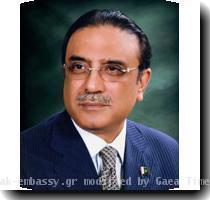Pakistani Taliban claim responsibility for Karachi bombing that killed 44
By Riaz Khan, APWednesday, December 30, 2009
Pakistani Taliban claim Karachi bombing
PESHAWAR, Pakistan — The Pakistani Taliban claimed responsibility Wednesday for a bombing against a Shiite Muslim procession in the southern city of Karachi earlier in the week that killed 44 people.
The Pakistani Taliban have rarely claimed any attacks in Pakistan’s largest city, and many analysts believe the group has spared Karachi in the past because its militants used the city as a haven to rest and raise money.
But Monday’s attack was one of the clearest examples yet of the group’s ability to strike far from its sanctuary in the northwest and its determination to escalate its war against the state.
A Taliban spokesman, Asmatullah Shaheen, told The Associated Press in a telephone call from an undisclosed location that the group had carried out Monday’s attack. He did not give a motive.
“We claim responsibility for the attack on the Shiite procession,” Shaheen said, adding that one of the group’s men was sent to the southern port city the day before the procession to carry out the bombing.
Shaheen, who is also a lower-level Pakistani Taliban commander, does not normally claim responsibility for attacks on behalf of the militants. But he said Monday’s bombing had been assigned to his group, and so he was making the claim.
President Asif Ali Zardari has speculated that the motive behind the attack was to spark sectarian conflict that could complicate the government’s battle against the Pakistani Taliban.
Pakistan has a history of violence between extremist elements among its majority Sunni Muslim and minority Shiite communities. Although the Taliban are not known for launching sectarian attacks, they have associations with Sunni militant groups that have targeted Shiites.
The bombing sparked rioting that destroyed buildings and thousands of shops in central Karachi, causing millions of dollars of damage. Parts of Bolton Market, the country’s largest wholesale market, were still smoldering on Wednesday.
It is unclear whether the Taliban carried out the bombing on its own or received help from other militant groups that officials say have a joint goal to destabilize Pakistan.
Karachi lawmaker Farooq Sattar said a Taliban strike against Karachi could be the latest retaliation for a major military offensive against the group’s stronghold in Pakistan’s lawless tribal areas in the northwest near the Afghan border. More than 500 people have been killed in militant attacks since the army invaded South Waziristan in mid-October.
“When they see they are losing in the northwest, why wouldn’t they turn to a new front?” Sattar said on Tuesday. “After all, they are fighting the battle for their survival.”
The bombing occurred as thousands of Shiites marched through Karachi to mark the key holy day of Ashoura. The death toll rose to 44 on Wednesday after one of the dozens of people wounded died, said Hashim Raza, a senior health official in Karachi.
Protesters roamed the streets immediately after the blast, setting fire to nearby buildings, firing guns into the air and throwing stones at security forces who had been assigned to protect the procession. The raging fires caused at least two buildings to collapse.
Officials initially blamed Shiites participating in the procession for the rioting but later said it was a planned conspiracy, a stance that may be intended to temper sectarian tensions.
Sunni religious leaders and politicians in Karachi called Wednesday for a strike to protest the bombing and the violent rampage that followed. They urged businesses and public transport companies to shut down Friday, a move that could paralyze the city if it happens.
“We condemn the terrorist attack on the Ashoura procession, which was a heinous act,” Mufti Muneebur Rehman, a moderate Sunni religious leader, told The Associated Press. “But it was a bigger act of terrorism when property and shops were set on fire in a pre-planned manner.”
The largest political party in Karachi, the Muttahida Qaumi Movement, also supported the call for a strike to show solidarity with Shiites as well as citizens whose property was damaged.
“It was not a simple reaction by the agitating masses,” said MQM provincial minister Faisal Sabzwari. “It seems like a pre-planned act of terrorism by vested interests.”
Although Karachi has avoided much of the Taliban-linked violence that has plagued much of the country, it has been the scene of frequent sectarian, ethnic and political attacks.
A suicide bombing in Karachi targeting former Prime Minister Benazir Bhutto killed more than 150 people in October 2007. Officials blamed the attack on former Pakistani Taliban leader, Baitullah Mehsud, but his group never claimed responsibility. Mehsud was killed earlier this year by a CIA missile strike.
____
Associated Press writer Ashraf Khan contributed to the report from Karachi.
Tags: As-pakistan, Asia, Asif Ali Zardari, Bombings, Karachi, Pakistan, Peshawar, Religious Strife, South Asia, Terrorism

